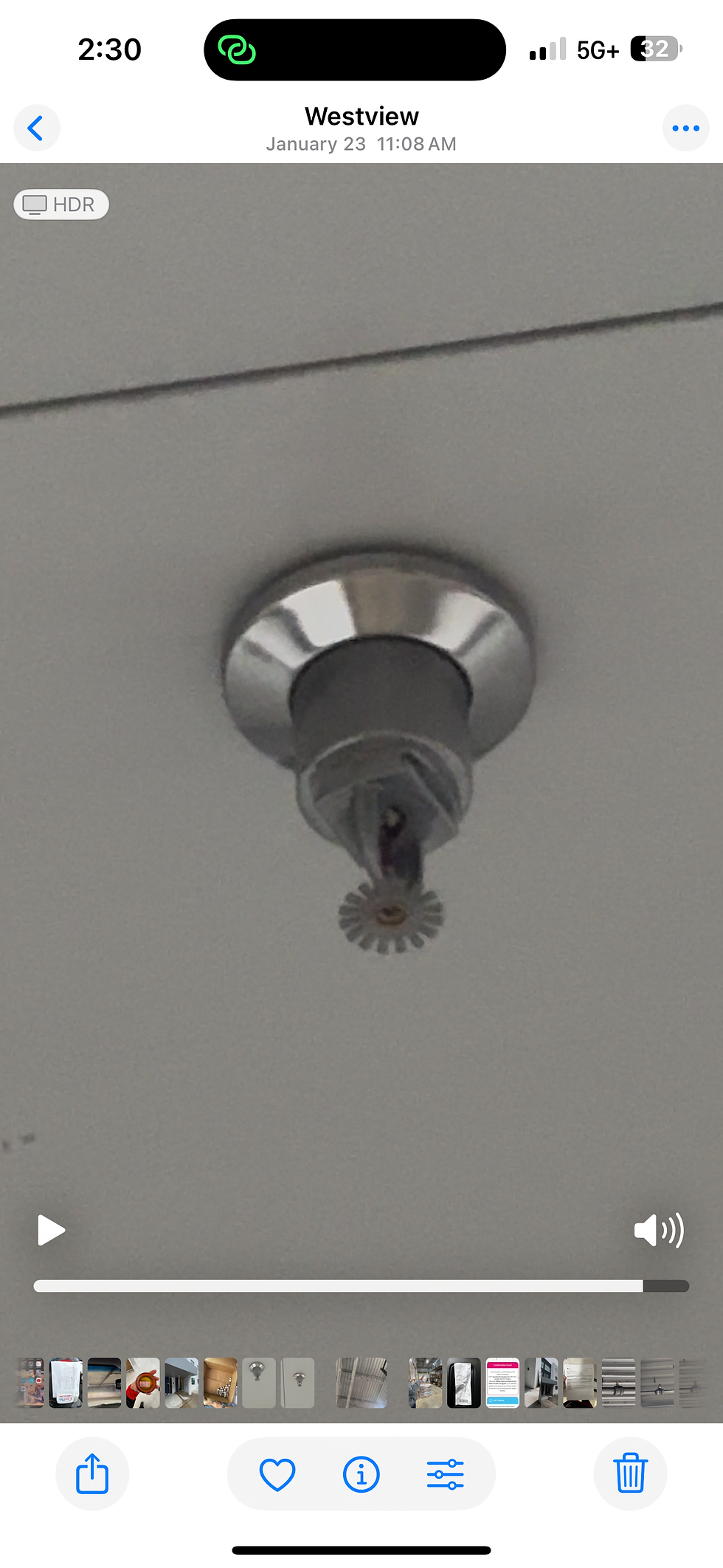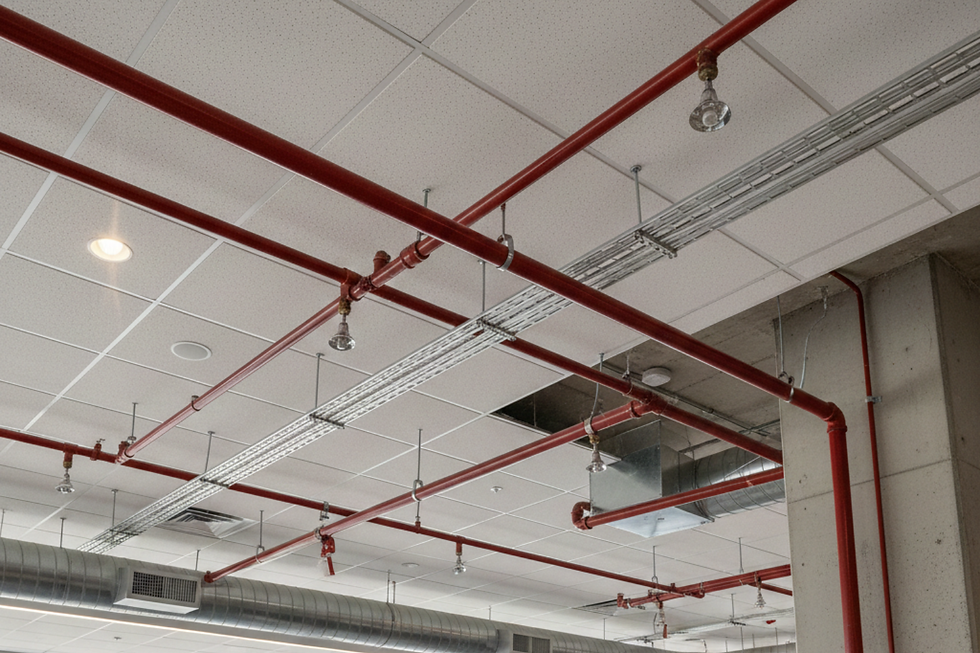Why Regular Fire Sprinkler Inspections Matter
- firejaime
- Aug 11, 2025
- 3 min read
Fire sprinkler systems are a critical part of any building’s safety infrastructure. They provide an automatic response to fires, helping to control or extinguish flames before they spread. However, like any safety equipment, fire sprinklers require regular maintenance and inspections to ensure they function properly when needed. Neglecting these inspections can lead to system failures, increased property damage, and even loss of life.
The Importance of Fire Sprinkler Inspections
Regular fire sprinkler inspections are essential for maintaining the reliability and effectiveness of your fire protection system. These inspections help identify potential issues such as corrosion, leaks, or mechanical failures that could prevent the system from activating during a fire emergency.
Key reasons why inspections matter:
Early detection of problems: Inspections reveal wear and tear or damage that might not be visible to the untrained eye.
Compliance with safety codes: Many local and national fire safety regulations require periodic inspections to keep insurance valid and avoid penalties.
Peace of mind: Knowing your system is in good working order reduces anxiety about fire risks.
Protecting lives and property: A well-maintained sprinkler system can save lives and minimize fire damage.
By scheduling routine checks, you ensure that your fire sprinkler system remains ready to protect your building and its occupants.

What Happens During Fire Sprinkler Inspections?
During a fire sprinkler inspection, a certified technician performs a thorough examination of the entire system. This includes checking the sprinkler heads, pipes, valves, and control panels. The goal is to verify that all components are in good condition and functioning as intended.
Typical inspection steps include:
Visual inspection: Checking for physical damage, corrosion, or obstructions around sprinkler heads.
Water flow test: Ensuring water can flow freely through the system without blockages.
Valve checks: Confirming that control valves are open and operational.
Alarm and control panel testing: Verifying that alarms activate correctly when the system is triggered.
Documentation review: Inspecting maintenance records and ensuring compliance with local fire codes.
If any issues are found, the technician will recommend repairs or replacements to restore the system’s effectiveness.

How often are fire sprinkler systems required to be inspected?
The frequency of fire sprinkler inspections depends on local regulations and the type of building. However, general guidelines recommend:
Quarterly inspections: For control valves and water flow devices.
Annual inspections: For a full system check including sprinkler heads, pipes, and alarms.
Five-year inspections: More in-depth testing such as internal pipe inspections and system flushing.
Some high-risk environments, like industrial facilities or healthcare buildings, may require more frequent inspections. It is important to consult with a professional to determine the right schedule for your property.
Regular inspections not only keep your system compliant but also help catch problems before they escalate.

Benefits of Professional Fire Sprinkler System Inspections
Hiring a professional for your fire sprinkler system inspections ensures that the job is done thoroughly and according to industry standards. Certified inspectors have the expertise and tools to detect hidden issues that could compromise your system.
Advantages of professional inspections include:
Expert knowledge: Professionals understand the latest codes and best practices.
Accurate diagnosis: They can identify subtle signs of wear or malfunction.
Proper documentation: Certified reports help with insurance claims and regulatory compliance.
Timely maintenance: Professionals can recommend and perform necessary repairs promptly.
By investing in professional inspections, you protect your building from fire risks and avoid costly repairs caused by neglect.
For more information on scheduling fire sprinkler system inspections, visit trusted service providers who specialize in fire safety.
Taking Action: Scheduling Your Next Fire Sprinkler Inspection
To keep your fire sprinkler system in top condition, it’s important to establish a regular inspection routine. Here are some practical steps to take:
Create a maintenance calendar: Mark inspection dates and follow up on any recommended repairs.
Choose certified inspectors: Verify credentials and experience before hiring.
Keep records: Maintain detailed logs of all inspections and maintenance activities.
Educate building occupants: Inform staff or residents about the importance of fire safety and system upkeep.
Review local regulations: Stay updated on fire safety codes that affect inspection frequency and requirements.
By proactively managing your fire sprinkler inspections, you reduce the risk of system failure and enhance overall safety.
Regular fire sprinkler inspections are a vital part of fire prevention and safety. They ensure your system is ready to respond effectively in an emergency, protecting lives and property. Don’t wait for a fire to reveal hidden problems - schedule your inspection today and maintain peace of mind.




Comments